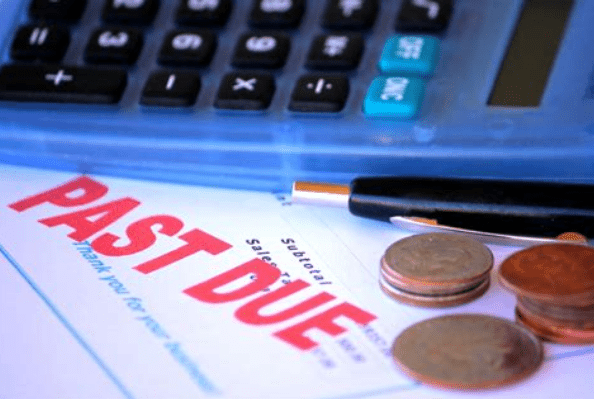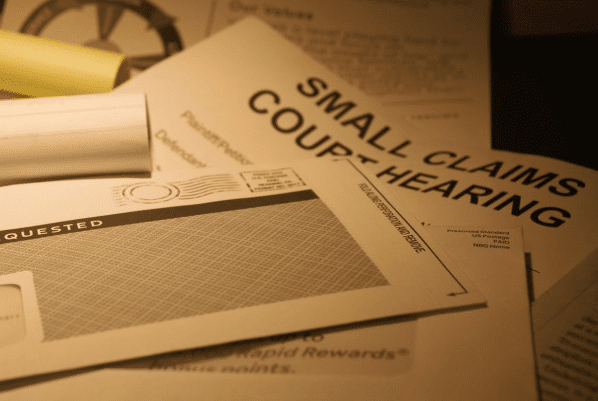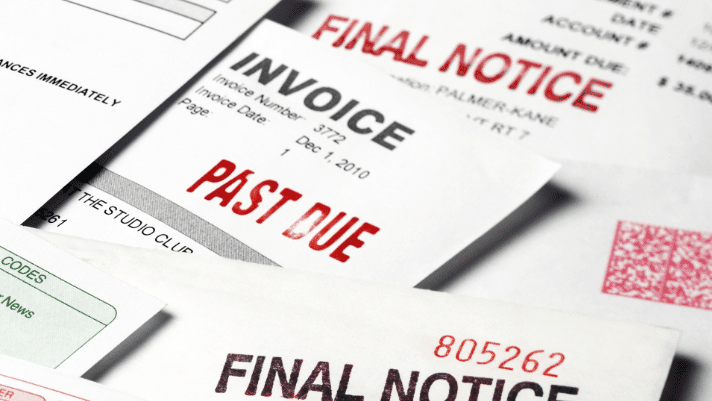If you reside in Mississippi and find yourself in need of assistance responding to a debt collection lawsuit, ZumaZip is here to lend a hand. Our platform can guide you through the entire process, making it easier for you to navigate the legal proceedings in Mississippi. With ZumaZip, you’ll have the support you need to respond effectively to the lawsuit.
Facing a debt collection lawsuit is undoubtedly a stressful experience, and it’s understandable if it feels overwhelming. Getting notice of a lawsuit during already challenging times can add to your worries. You may feel scared and uncertain, especially if you’ve never been sued before. Seeking professional legal help may seem ideal, but financial constraints can make it difficult.
Ignoring the situation might seem tempting, but it’s crucial to resist that urge and take steps to protect yourself.
This article aims to ease the process of responding to a debt lawsuit and provides guidance on how to answer a summons for debt collection in Mississippi. You’ll find valuable information tailored to filing in Mississippi, including deadlines, forms, and what to expect in this legal process. We’re here to help you navigate this challenging situation with confidence.
Table of Contents
- Deadlines
- Steps to Respond
- What is ZumaZip?
- Statute of Limitations in Mississippi
- Kansas Legal Aid Organizations
- Key Takeaways
- Guides for Other States
Mississippi Deadline for Answering a Debt Collection Summons
To effectively respond to a debt collection lawsuit in Mississippi, it’s important to understand some key legal terms, which we’ll cover here.
Your initial notification of the lawsuit against you likely came in the form of a Summons and Complaint. This marks the beginning of the lawsuit. The Complaint outlines the allegations made by the plaintiff (either your creditor or a third-party collection agency) asserting that you owe a debt, the amount owed, and that you’ve fallen behind on payments.
The Summons, on the other hand, is the official notice from the Court that a lawsuit has commenced with the filing of the Complaint. It also specifies the timeframe within which you must respond. When you receive these documents, either in person or via U.S. Mail, it’s referred to as “service” or “being served.” Additionally, these documents often include a “certificate of service,” which indicates the date you were officially notified. Understanding these terms is crucial in navigating the response process to a debt collection lawsuit in Mississippi.
Knowing the date of service is vital to determining your deadline to respond. In Mississippi, you have 30 days to respond to a debt collection lawsuit. It’s important to keep a few things in mind:
- These deadlines are very strict
- The clock on your 30 days starts as soon as you are served.
- The 30 day response time may include times that the Court is not open, like weekends or federal holidays. If the 30th day falls on one of those days, the deadline would be the next business day that the Court is open.
Adhering to this deadline is crucial for your well-being in this scenario. It’s natural and quite common to feel inclined to ignore a lawsuit filed against you. However, this reaction is precisely what the party initiating the lawsuit (referred to as the “plaintiff” in legal terms) is counting on. If you fail to respond to the debt collection lawsuit within the designated timeframe, the Court may issue something known as a default judgment in favor of the plaintiff.
A default judgment essentially means that they win the lawsuit by default because you didn’t respond to it. While it’s occasionally possible to petition the Court to set aside a default judgment to allow you the chance to respond, such occurrences are exceedingly rare. Once the plaintiff obtains a default judgment, they can pursue more aggressive measures to collect the money owed. This often involves utilizing the Court order to garnish your wages or tax returns, resulting in deductions from your paycheck before you receive it—placing you in an even more precarious financial position. Although it may be feasible to request the Court to set aside a default judgment and provide an opportunity to respond, such instances are infrequent.
Understanding the consequences underscores the importance of ensuring that you do respond to the lawsuit within the specified timeframe. Firstly, it disrupts the plaintiff’s plans, as they were hoping for a straightforward victory without much effort. By responding, they’ll be required to invest resources into handling the case themselves, which they would prefer to avoid. Let’s take action.
Mississippi Answer to Summons Forms
There are a number of forms available online for legal actions in Mississippi is but unfortunately, a template for an Answer document isn’t one of them. You can see a sample Answer form here, although please note it is not specific to Mississippi. We will guide you through the process to draft a proper answer below, both in form and content, to use as your defense in your debt collection case.
If the lawsuit is filed in Justice Court (for civil matters concerning less than three thousand five hundred dollars) you can check out this helpful guide for representing yourself (also referred to as “pro bono.”)
Luckily, ZumaZip can do all the work for you by creating your Answer quickly in the proper format. With just a few questions we can translate your responses into the proper legalese and format to file in Mississippi. In addition, we’ll also have an attorney review it to make sure everything is just right and then file it on your behalf so you don’t need to worry about any of the details.
Steps to Respond to a Debt Collection Case in Mississippi
A lawsuit begins when the plaintiff files their Complaint against you in the Court and then serves that document along with a Summons from the Court.
You can respond in one of two ways; either an Answer document or a Motion. An Answer document is more straightforward and usually sufficient. Motions are requests made to the Court that should really be handled by attorneys as there is a lot more specific procedure involved.
As we discussed above, if you don’t respond within that 30-day period, you will automatically lose your case by default judgment. All you need to do to avoid that outcome is to complete the four steps below:
- Create an Answer document
- Answer each issue of the complaint
- Assert affirmative defenses
- File one copy of the Answer document with the court and serve the plaintiff with another copy.
It’s never a bad idea to make an additional copy of the paperwork for your own records as well. We will detail each step below.
1. Create an Answer Document.
Step one tom making your response to a debt collection lawsuit is creating your answer document in the proper format.
To do so, you’ll need to gather the information listed on the Complaint and Summons and add it to your Answer. This includes the following:
- Your personal information: address, name, etc.
- The plaintiff’s information: the attorney suing you, the company suing, their address, etc.
- The Court’s information: the name of the court the case is in, which division in Mississippi, the address of the court, etc.
- The case information: the case number, cause number, index number, or civil number, the amount of the lawsuit, etc.
Make certain to create the caption portion (plaintiff vs. defendant etc.) in the same format as the documents you received. This is necessary to file your Answer with the Court. Once you have formatted your Answer document with the information you gathered you’re ready to move on to step two.
2. Answer each issue of the Complaint.
The next step is to respond to the Complaint. It’s probably a lot easier than you think.
ZumaZip makes it easy to respond to every paragraph.
You’ll want to read through the Complaint and consider each numbered paragraph separately, and then respond with one of the following three ways:
- Admit
- Deny
- I don’t know
Choose whichever of the above responses is appropriate and list it in your Answer document. Be certain to list each response beginning with the same number as the corresponding paragraph in the Complaint, so it is clear to see which response goes with each allegation.
Keep in mind that you don’t need to deny each allegation in order to win (although that can be a strategic decision, more on that below.) There’s no harm to admitting facts that are true, such as your name and address. You should use the third response when you can’t verify something, for example, the debt collection company suing you may state that they are incorporated in Mississippi. Chances are you have no way to independently verify that claim, so saying “I don’t know” as your response is perfectly fine.
As an alternative, you could go with making a general denial, where you deny everything in the complaint and force the other side to prove everything. This is a tactic often recommended by attorneys. It puts the burden of proof on the plaintiff to prove everything.
3. Assert affirmative defenses.
The third step might even be fun because this is where you get to fight back by asserting affirmative defenses. An affirmative defense is a reason you can assert to show why the plaintiff doesn’t have a case. There are plenty of possible affirmative defenses under Mississippi law. You can list any and all affirmative defenses that apply to your situation.
Below are some of the more common defenses we see in Mississippi debt collection cases:
- The account listed in the Complaint is not yours. The account number might be wrong. Or perhaps you’ve been a victim of identity theft and someone else opened the account. If you have any documentation to support this defense (like a statement with your actual account number and/or name, or a police report you filed about the identity theft) you should reference it and include a copy in your Answer as an exhibit.
- The debt has been paid or excused. Maybe you already paid this debt. If so, they can’t collect it again. Or perhaps you came to an agreement with the creditor to pay a lesser amount to satisfy the debt in full satisfaction. Again, reference and attach any supporting documentation such as bank records showing a cashed check or online payment, or any correspondence between you and the creditor regarding a lower payment.
- You disagree with the amount of the debt as stated in the Complaint. You can admit to owing a debt and still contest the amount if you feel it is excessive and would unjustly enrich the creditor. Usually, by the time an unpaid debt gets to the lawsuit stage, it has grown far larger than the original amount through interest, late fees, and penalties.
- The debt was already discharged in a bankruptcy. If you previously filed a bankruptcy case and this debt was included and successfully discharged then the plaintiff cannot try to collect it through the Court. You are no longer legally responsible for a debt that has been discharged in bankruptcy.
- The statute of limitations has expired. A statute of limitations is a law that sets a deadline for legal action. We will discuss the Mississippi statute of limitations on debt collection in more detail later in this article.
- You can’t confirm that the plaintiff holds the debt. Chances are high that the party suing you is not the original holder of your debt. As a general practice, creditors sell off uncollected debt to third-party debt collection companies after a period of time (minimum of 90 days) has passed, for pennies on the dollar. If the company suing you is not the original debt holder you can absolutely demand that they prove, through a paper trail, that they legally purchased and hold your exact debt.
The above are just a few of the many affirmative defenses. Please note, however, that inability to pay the debt is not normally a legal defense to the debt.
You also have the opportunity here to assert counterclaims, which refers to any wrong-doing by the party suing you under Mississippi debt collection laws. This can get pretty complicated, so it’s best to have legal assistance when doing so. Keep in mind that it will be up to you to prove your counterclaims at trial, so be thoughtful about any counterclaims you list. Attach any documents or evidence that supports your counterclaim. If you believe that you can prove your counterclaim(s) you will also need to fill out a “statement of damages” form stating how much money you believe is appropriate for your damages.
4. File the answer with the court and serve the plaintiff.
ZumaZip can handle this step for you so you don’t need to leave the comfort of your own home
The final step is missed much more often than you’d think. Don’t let all the work you’ve put in so far go to waste! Make sure to file your Answer with the Court and service the suing party.
Here’s what you need to do to file your answer.
- Print at least two copies of your Answer
- Mail one copy to the court
- Mail the other copy to the plaintiff’s attorney.
As mentioned above it’s a good idea to keep a copy of your Answer and any supporting documents for your own records. If you don’t have access to a printer at home or at work you can try your local branch of Mississippi’s public library system or an office supply store for reasonable printing rates. You’ll be able to find the addresses you need for both the court and the plaintiff’s counsel in the Summons and Complaint you received in the mail.
What is ZumaZip?
ZumaZip is your solution for simplifying the process of responding to a debt collection lawsuit.
Here’s how it works: ZumaZip is a user-friendly web application that guides you through the process step by step. It prompts you with all the necessary questions to complete your response comprehensively. Once you’ve finished, you have the option to print the completed forms and mail them to the courts yourself. Alternatively, you can choose to have ZumaZip file the documents for you and even have an attorney review the document for added peace of mind.
Statute of Limitations on Debt in Mississippi
When you’re seeking any kind of Mississippi debt relief it’s important to know and understand the Mississippi statute of limitations on debt relief. The statute of limitations for debt collection through the courts in Mississippi varies based on the type of debt between three and seven years. Both medical debt and credit card debts have a three-year statute of limitations, while auto loan debt can go for six years and state tax debt can go for seven years.
| Mississippi Statute of Limitations on Debt | |
| Debt Type | Deadline in Years |
| Oral | 3 |
| Written | 3 |
| Mortgage | 3 |
| Open | 3 |
| Credit Card | 3 |
| Auto Loan | 6 |
| State Tax Debt | 7 |
| Judgment | 7 |
Source: Findlaw | |
Mississippi Legal Aid Organizations
All states have at least one government-funded organization that provides free legal services to people. In Mississippi, there are a number of legal aid organizations that help residents with legal services when they can’t otherwise afford to hire an attorney.
Mississippi Center for Legal Services
414 South State Street, 3rd Floor
P.O. Box 951
Jackson, MS 39205
Toll-Free 1-800-498-1804
Mississippi Volunteer Lawyers Project
P.O. Box 1503
Jackson, MS 39215
E-mail: mvlp@mvlp.org
Phone: 601-960-9577
Mission First Legal Aid Office
275 Roseneath Street
Jackson, MS 39203
E-mail: info@missionfirst.org
Phone: 601.608.0050
Mississippi Center for Justice
5 Old River Place, Suite 203 (39202)
P.O. Box 1023 Jackson, MS 39215-1023
Phone: (601) 352-2269
Fax: (601) 352-4769
North Mississippi Rural Legal Services
Toll-Free: 1-800-498-1804
Mississippi Pro Bono Resources
Key Takeaways
So, in short, here’s the review on how to answer a summons for debt collection in Mississippi.
- Remember your response deadline is 30 days.
- Draft an Answer in the proper format for Mississippi courts, or use or ZumaZip.com to do it for you.
Follow these three steps:
- Answer each issue in the complaint.
- Assert your affirmative defenses
- File and serve the Answer
What is ZumaZip?
ZumaZip is a convenient solution designed to streamline your response to a debt collection lawsuit. Here’s a breakdown of what you can expect when you use ZumaZip:
Firstly, you’ll access our user-friendly web application, which guides you through the process step by step. You’ll be prompted to answer a series of questions related to your specific situation. Once you’ve completed the questionnaire, you have the option to either print out the finalized forms and mail them to the appropriate courts yourself, or you can opt to utilize ZumaZip’s services to file them on your behalf. Additionally, if you choose this option, an attorney will review your document for added peace of mind.
If you’re seeking guidance on how to effectively respond to a debt collection lawsuit, ZumaZip can provide the assistance you need. Feel free to explore our FAQs for more information on what ZumaZip has to offer.
What if I haven’t been sued yet?
If you’ve only received a collections notice, but not a lawsuit, the best way to respond is with a Debt Validation Letter. When a debt collector contacts you in any way, whether it’s by phone or mail, you can respond by formally requesting a debt validation with a Debt Validation Letter . This letter notifies the collector that you dispute the debt and forces them to provide proof you owe the debt. They can’t call you or continue collecting until they provide validation of the debt. This flowchart shows how you can use a Debt Validation Letter to win.
Get started with a Debt Validation Letter here.
How to Answer a Summons for debt collection in all 50 states
Here’s a list of guides on how to respond to a debt collection lawsuit in each state:
- Alabama
- Alaska
- Arizona
- Arkansas
- California
- Colorado
- Connecticut
- Delaware
- Florida
- Georgia
- Hawaii
- Idaho
- Illinois
- Indiana
- Iowa
- Kansas
- Kentucky
- Louisiana
- Maine
- Maryland
- Massachusetts
- Michigan
- Minnesota
- Mississippi
- Missouri
- Montana
- Nebraska
- Nevada
- New Hampshire
- New Jersey
- New Mexico
- New York
- North Carolina
- North Dakota
- Ohio
- Oklahoma
- Oregon
- Pennsylvania
- Rhode Island
- South Carolina
- South Dakota
- Tennessee
- Texas
- Utah
- Vermont; Vermont (Small Claims court)
- Virginia
- Washington
- West Virginia
- Wisconsin
- Wyoming
Guides on how to beat every debt collector
Hey there! Facing off against a debt collector can feel like a daunting challenge, but fear not! We’re here to help you navigate through it all with our handy guides designed to assist you in beating every debt collector you encounter. Whether you’re facing a new lawsuit or dealing with a persistent collector, we’ve got your back. Stay positive, stay informed, and let’s tackle this together!
- Absolute Resolutions Investments LLC
- Accredited Collection Services
- Alliance One
- Amcol Clmbia
- American Recovery Service
- Asset Acceptance LLC
- Asset Recovery Solutions
- Associated Credit Services
- Autovest LLC
- Cach LLC
- Cavalry SPV I LLC
- Cerastes LLC
- Colinfobur
- Covington Credit
- Crown Asset Management
- CTC Debt Collector
- Cypress Financial Recoveries
- Delanor Kemper & Associates
- Eagle Loan of Ohio
- Educap
- Estate Information Services
- FIA Card Services
- Forster & Garbus
- Freshview Solutions
- Fulton Friedman & Gullace LLP
- Harvest Credit Management
- Howard Lee Schiff
- Hudson & Keyse LLC
- Integras Capital Recovery LLC
- Javitch Block
- Jefferson Capital Systems LLC
- LVNV Funding
- Mannbracken
- Mariner Finance
- Medicredit
- Michael J Adams PC
- Michael J Scott
- Midland Funding LLC
- Mullooly, Jeffrey, Rooney & Flynn
- Mountain Land Collections
- MRS Associates
- National Collegiate Trust
- Nationstar Foreclosure
- Northstar Capital Acquisition
- NCEP LLC
- NRC Collection Agency
- OneMain Financial
- Palisades Collection LLC
- Pallida LLC
- Paragon Revenue Group
- Pinnacle Collections Agency
- PMAB LLC
- Portfolio Recovery Associates
- Provest Law
- PYOD LLC
- Reunion Student Loan Finance Corporation
- Revenue Group
- Regents and Associates
- RSIEH
- Salander Enterprises LLC
- Second Round Sub LLC
- Security Credit Services
- Sherman Financial Group
- Suttell and Hammer
- T-Mobile
- Transworld Systems
- Tulsa Teachers Credit Union
- UCB Collection
- Velo Law Office
- Velocity Investments
- Waypoint Resource Group
- Weinberg and Associates
- Wolpoff & Abramson
Settle your medical debt
Having a health challenge is stressful, but dealing medical debt on top of it is overwhelming. Here are some resources on how to manage medical debt.
- Am I Responsible for My Spouse’s Medical Debt?
- Do I Need a Lawyer for Medical Bills?
- Do I Need a Lawyer to Fight Medical Bill Debt?
- Does Bankruptcy Clear Medical Debt?
- How Much Do Collection Agencies Pay for Medical Debt?
- How to Find Medical Debt Forgiveness Programs
- Is There a Statute of Limitations on Medical Bills?
- Medical Debt Statute of Limitations by State
- Summoned to Court for Medical Bills — What Do I Do?
- Summoned to Court for Medical Bills? What to Do Next
Stop calls from Debt Collectors
Do you keep getting calls from an unknown number, only to realize that it’s a debt collector on the other line? If you’ve been called by any of the following numbers, chances are you have collectors coming after you, and we’ll tell you how to stop them.



































